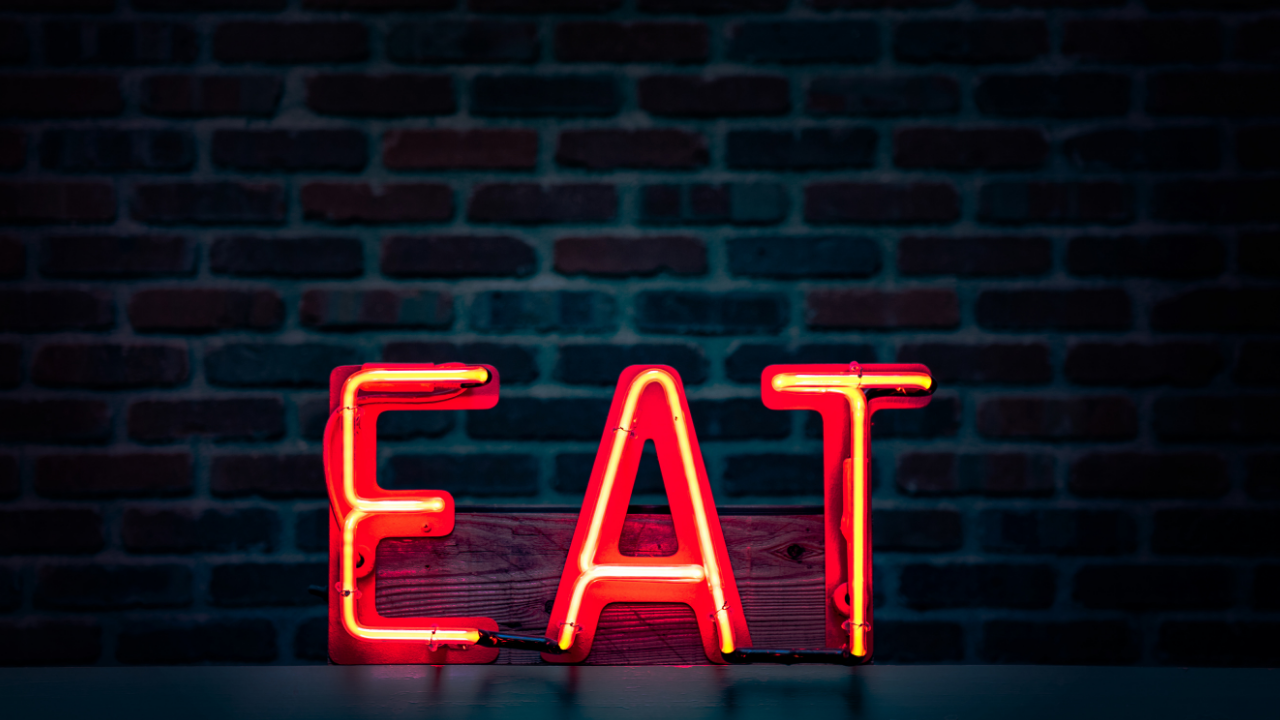
EAT!
Mar 04, 2022Many women aren't eating enough. Here's why it's important and how to get more calories in.
Text by Miranda Bush, Feisty Triathlon Head Coach & Educator
As a population, women do not eat enough. When coupled with participation in endurance athletics it can even more easily create a breeding ground for Low Energy Availability (LEA) and Relative Deficiency in Sport (RED-S). LEA is the term used to describe a scenario where the energy (calorie) intake of an individual is less than the energy they expend to such a degree that there is insufficient power to meet daily basal needs. Basically, calories out > calories in. Living in a state of LEA not only has been proven to affect your performance and overall health, but it can lead to Relative in Sport (RED-S). RED-S is the broader, more comprehensive name for what was formerly known as the female athlete triad. It is a condition where the body is not taking in enough energy to meet the demands placed on it by the amount of exercise being performed.
Signs of LEA can include:
- Recurrent injury (soft tissue and/or bone)
- Recurrent Illness
- Unexpected fatigue
- Disrupted sleep patterns
- Change in mood
- Reduced social interaction
- Stagnation and deterioration in performance
- Weight gain despite careful training and eating
It is important not only as athletes, but as women in all other roles in our lives, that we do our best to avoid entering a state of LEA and RED-S. It is a good idea to bring awareness to what could be influencing our decisions around fuelling and then make a plan to just eat.
Why Don’t Women In Triathlon Eat Enough?
DIET. CULTURE.
Diet culture is the pervasive belief that appearance and body shape are more important than physical, psychological, and general well-being. It's the idea that controlling your body, particularly your diet by limiting what and how much you eat—is normal.
Diet culture also normalizes labeling foods as good or bad and thinking of food as transactional—something that you either earn or don't deserve depending on how you've eaten and worked out. Not only is food labeled but people may label themselves as good or bad for consuming these foods, cultivating a lack of self trust surrounding food choices.
According to research, although the effects of diet culture are widespread in the United States, it more directly affects women as women are typically subjected to more appearance ideals and objectification. And women from different racial or ethnic backgrounds may experience diet culture pressures differently. Sadly, diet culture's emphasis on impossible body standards contributes to the body dissatisfaction that has become the norm for American women. It’s ever prevalent influence has caused fear around eating, which can lead to habitual underfuelling for athletes.
Women are Short on Time
As I have detailed in past articles, women live busy lives in and outside of sport. In triathlon it is challenging enough to juggle the demands of three sports plus weekly strength training. Lack of time often leads to more “reactive” eating (who hasn’t eaten the crusts of your kids’ grilled cheese sandwiches as “lunch”?!) Taking the time to meal prep, count macros, sit down to a full meal, or even eat at all often doesn’t fit into a packed schedule. Often, a lack of planning and intentionality surrounding food can lead to not taking in enough in addition to missing quality nutrients.
Women and GI Issues
Women seek more treatment for GI disorders, with the risk of developing them escalating through stages of life. Studies have revealed that irritable bowel syndrome (IBS) is more common in women than men. And when compared to men with IBS, women with IBS are more likely to report additional functional gastrointestinal (GI) conditions including globus, dysphagia, bloating, constipation, fecal incontinence and pelvic floor dysfunction. Reports also show that the predispensity to these conditions worsens with age, including acid reflux, or GERD. When eating causes discomfort, or even pain, it is most definitely not as appealing.
Exercise Affects Hunger Sensations
Studies have now shown that aerobic exercise decreases appetite by changing the levels of hormones that drive our state of hunger. Women might not be made aware through normal cues of the need to eat following workouts. I am sure many of you are familiar with this– you finish a workout and don’t notice your hunger until you are ravenous a couple hours later.
Now that you are aware of a few of the reasons why you may not eat enough, what do you do about it?

Tips to EAT for Women in Triathlon
- Learn all about your physical body. Practice self love in the form of awareness and acceptance. Acknowledge the things that you don’t like about your body and be kind to yourself, including your perceived flaws and imperfections. Be mindful of the messaging you are exposed to and careful who you have in your spheres of influence. Check out this F*ck Diet Culture podcast from Sara Gross and our Feisty Women’s Performance brand.
- Create intentionality and awareness around food and how it feels in your body (not rigidity and more rules). Sit down to eat, slow down, and try keeping a food journal detailing how you feel during or after eating certain foods. Understand and avoid foods that trigger GI distress when possible. Fuel your body for what it can do, not how it will look–especially not according to outside established standards of beauty.
- Food prep and plan. Keep things simple and don’t be afraid to enlist the help of friends and family. Invite your friends over for a group meal prep session to fill your refrigerator and freezer. Assign your partner and/or kids evenings to cook dinner. Make food prep days a family affair (trust me here–my kids started cooking while supervised at three years old and using knives at four. And they still have all of their fingers :)
- Fuel around your workouts. Have a strategy that includes a small snack containing protein and carbs before exercise, 25-40 grams of protein within 30 minutes post workout, and a meal containing protein and carbs within two hours post exercise. Fuel in your workouts when needed, especially those over 90 minutes. Hire a nutritionist who specializes in women’s athletic nutrition or get more detailed information at Dr. Sims' blog.
- Know why you choose triathlon–you can lose weight while doing the sport, but it can be a slippery slope to underfuelling when it is your “why.” You need food, not only to perform well in triathlon, but to have the energy to live a full life. Be intentional in fuelling for what you want to do. If you want to lose a small amount of weight in the process, you can taper your calories off during the non-training/not surrounding training hours.
Be aware of the outside influences that make eating a more challenging endeavor. As athletes it is vital that you EAT to perform well while living full, energy-filled lives.

Miranda Bush is the Head Coach and Educator at Feisty Triathlon. She is USA Triathlon and Training Peaks certified, as well as a certified Health Coach. She is also a graduate of Dr. Stacy Sim’s Women Are Not Small Men and Menopause for Athletes courses. As a longtime coach specializing in training women, her passion lies in using lessons from training and racing to teach athletes to evolve physically, mentally, and emotionally through sport. Miranda is also a longtime athlete and multiple Ironman and 70.3 distance podium finisher, maintaining a consistent racing career while working and raising her kids. She resides in Wisconsin with her three teenagers and husband who all love to race triathlon.
Get Feisty Triathlon straight to your inbox
Get the low-down on what's happening in the world of women's triathlon, tips & tricks to crush it on the race course and be the first to know about special offerings from our feisty sponsors.
We hate SPAM. We will never sell your information, for any reason.

